Soundproofing a wall
aramaram
9 years ago
Related Stories
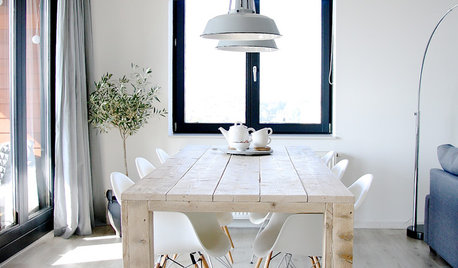
FEEL-GOOD HOME10 Ways to Have a Haven in the City
Escape urban stress by decorating with soothing colors, soundproof layers and other touches that relax and recharge
Full Story
REMODELING GUIDES11 Reasons to Love Wall-to-Wall Carpeting Again
Is it time to kick the hard stuff? Your feet, wallet and downstairs neighbors may be nodding
Full Story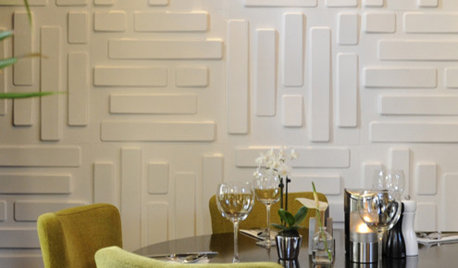
MATERIALSUnexpected Style for Your Wall
Go Beyond Paint and Paper with 3D, Plaster, Copper, Tile, Marble and More
Full Story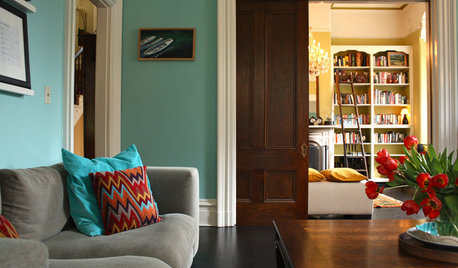
REMODELING GUIDESPocket Doors and Sliding Walls for a More Flexible Space
Large sliding doors allow you to divide open areas or close off rooms when you want to block sound, hide a mess or create privacy
Full Story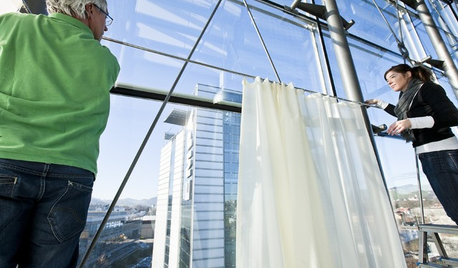
HOME OFFICESQuiet, Please! How to Cut Noise Pollution at Home
Leaf blowers, trucks or noisy neighbors driving you berserk? These sound-reduction strategies can help you hush things up
Full Story
DECORATING GUIDESGet Cushy With Padded Surfaces
A little extra padding in the right places can deepen the beauty of walls, floors, headboards and more in the home
Full Story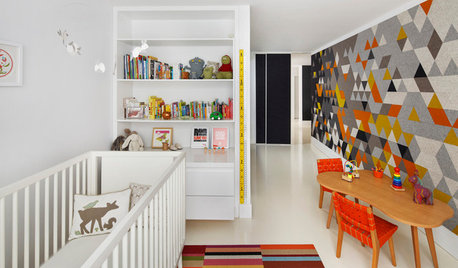
WALL TREATMENTSRoom of the Day: Felt Creates a Happy Feeling in a Boston Nursery
A designer couple’s modern nursery features clean white surfaces with a surprising material on a statement wall
Full Story
PAINTINGBulletproof Decorating: How to Pick the Right Kind of Paint
Choose a paint with some heft and a little sheen for walls and ceilings with long-lasting good looks. Here are some getting-started tips
Full Story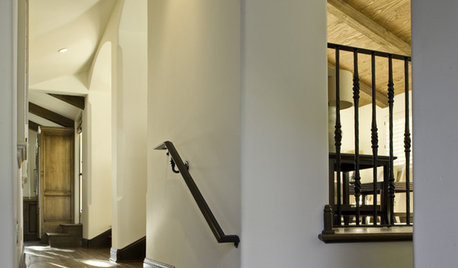
MATERIALSRaw Materials Revealed: Drywall Basics
Learn about the different sizes and types of this construction material for walls, plus which kinds work best for which rooms
Full Story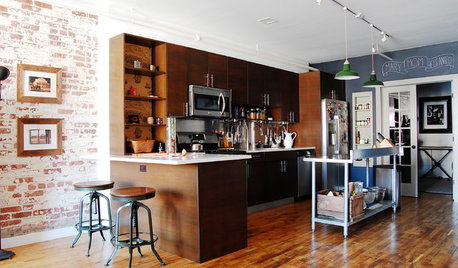
HOUZZ TOURSMy Houzz: Raw Meets Refined in an Open Brooklyn Loft
Exposed brick and rustic elements mix thoughtfully with global art and textiles in a former warehouse
Full Story





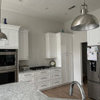


renovator8
Joseph Corlett, LLC
Related Professionals
Corcoran Kitchen & Bathroom Designers · Vineyard Kitchen & Bathroom Designers · Lyons Kitchen & Bathroom Remodelers · Omaha Kitchen & Bathroom Remodelers · South Barrington Kitchen & Bathroom Remodelers · Sweetwater Interior Designers & Decorators · Albany General Contractors · Browns Mills General Contractors · Bryn Mawr-Skyway General Contractors · Deer Park General Contractors · Gary General Contractors · Hermitage General Contractors · North Lauderdale General Contractors · Rocky Point General Contractors · Union Hill-Novelty Hill General ContractorsUser
lazy_gardens
aramaramOriginal Author
worthy
renovator8
renovator8